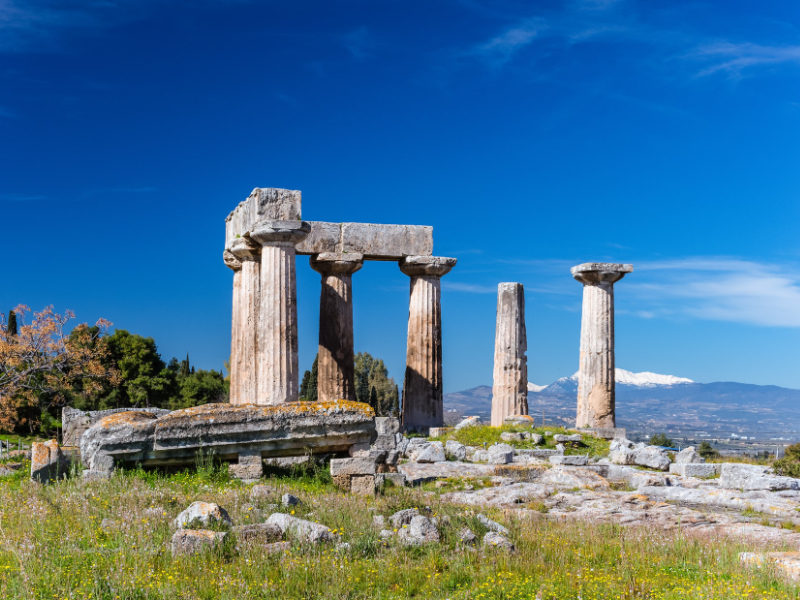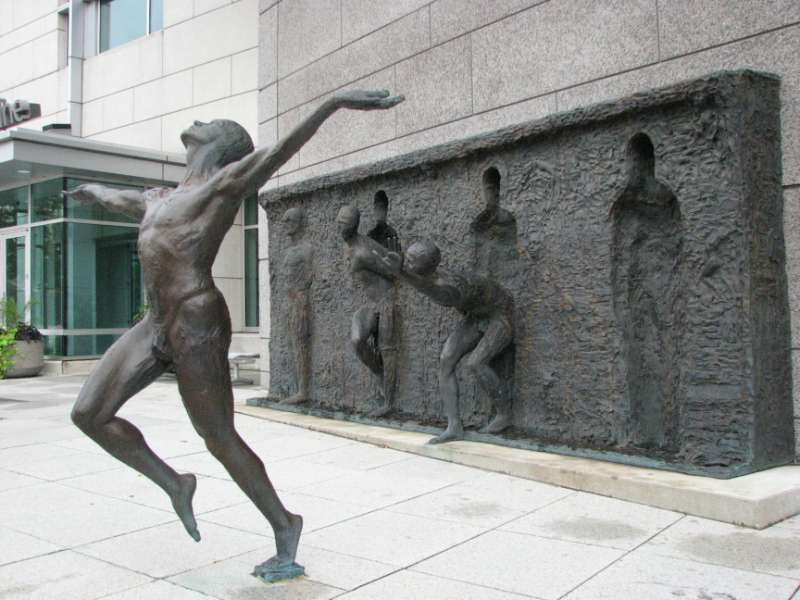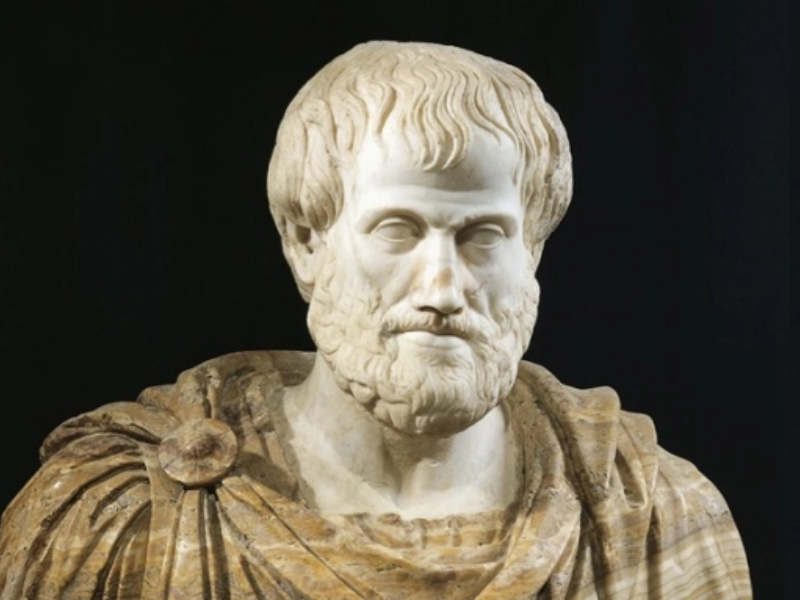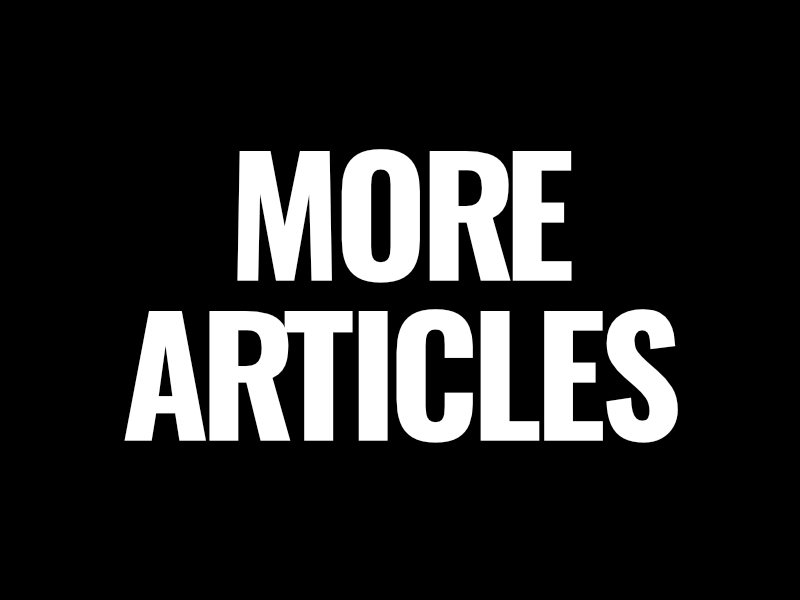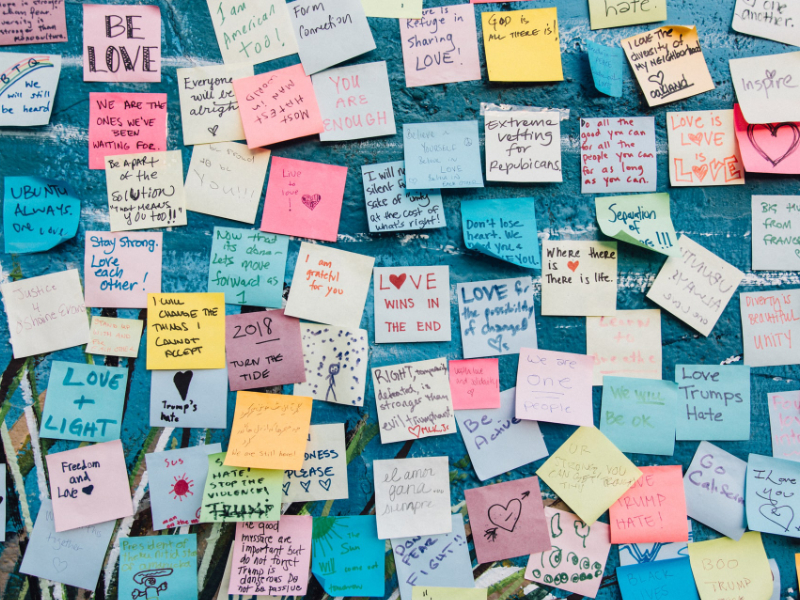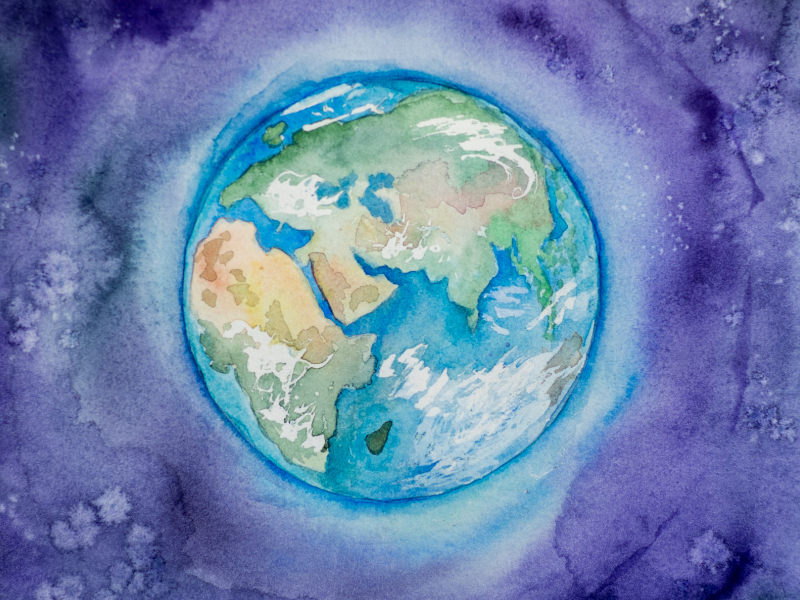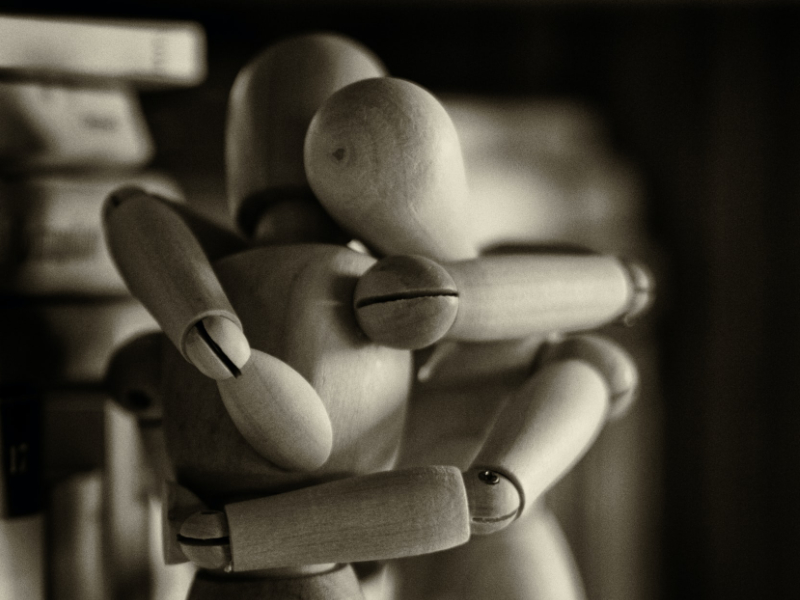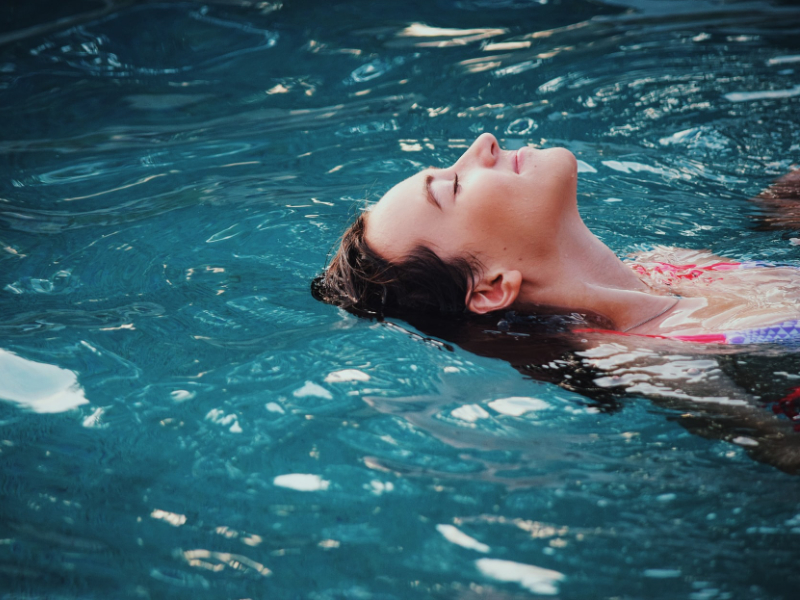Who Decides What’s Good & Evil?
– Questions of Moral Philosophy –
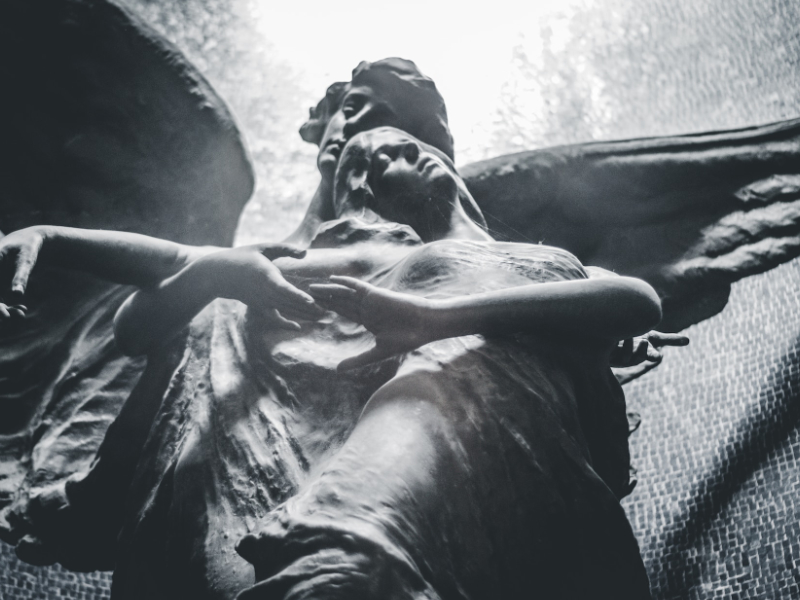
WE HAVE SEEN HOW THE GREEKS came to better understand the physical world, as well as concepts like happiness. But we haven’t asked if and how we can better understand our own morality? Can we make objective claims about our behaviors, norms, and institutions? Is there anything like moral progress? How can we be sure?
Moral philosophy is arguably the most confused and misguided arena of philosophy. On the one side, there are still many, mostly on the political Right, who believe that reason and science can’t shed light on morality. It belongs to religion, they argue. Only god can determine what is good and evil.
And on the other side, there are many, even philosophers and scientists, who deny any objectivity to our morals. Following David Hume, an eighteenth century Scottish philosopher, they argue that it’s impossible to derive an ought, or a moral proposition, from an is, a factual statement. “’Tis not contrary to reason,” Hume famously wrote, “to prefer the destruction of the whole world to the scratching of my finger.” This view, which is becoming increasingly popular on the political Left, claims that our norms, values, and behaviors have no objective basis but instead depend entirely on the culture we grew up in.
Were philosophy confined to old men in tweed jackets, this wouldn’t be much of a problem. But ideas are powerful and they can — and do — have drastic consequences on our lives and on our society at large. For those who believe morality comes from god, there is the obvious problem of which god to listen to — there are thousands of gods on record. There’s also the problem of suicide bombers, patriarchy, sexism, racism, homophobia, forced marriages, genital mutilation, mass genocide, and all the rest that are brazenly forced onto society.
And in the other camp, we are left with the absence of any rational moral framework. Morality amounts to nothing more than a fiction, each of us confined to the fiction of our cultural inheritance. If the moral relativists abide by their own logic, the Northern States in the U.S. had no bases to tell the Southern states they were wrong to have slaves. Slave trading is a deep part of their cultural inheritance — it’s there in the Old Testament, in Leviticus and Deuteronomy. In fact, many of the patriarchs of the Bible were slave owners.
And in this same vein, we in the West currently have no place to stand to tell the Taliban it is ‘wrong’ to stone their daughters to death for having sex outside of marriage. We can never tell the Saudi Arabian government it is ‘wrong’ for hanging gays in the street by the dozens. Why? Because we in the West don’t share the same Quranic values as the Taliban or the Islamic Theocracy of Saudi Arabia. So much for spreading safety, peace, political freedom, free speech, gender and racial equality, and other basic human rights to the world’s precious children.
Moral relativism is not only misguided. It’s lazy, irresponsible, cowardice, and downright cruel. Until recently, though, it didn’t have much teeth, since most people still looked to their religion on matters of morality. As more and more of us leave religion behind in this Information Age, though, the danger of collapsing into moral relativism is becoming more imminent and the need for a secular and rational morality more pressing.
In the next few episodes, then, we will explore the problem and hopefully clear up the confusion. For there is a simple one on offer, which to my surprise has been largely overlooked by philosophers, scientists, and intellectuals alike. The solution is this: all knowledge — whether physical, biological, social, political, moral or otherwise — evolves through the same humble method of trial and the elimination of error.
In the field of morality, then, Hume’s problem disappears. We can concede that it is impossible to derive an ought from an is. But that’s no matter, since all knowledge is conjectured anyway, including our moral propositions — what we ought to do.
This, however, does not mean we need to abandon our pursuit of moral progress. When we own up to our fallibility in the moral sphere, when we admit that not only our behaviors, norms, and traditions are conjectured but that so too are the very aims and values these behaviors attempt to achieve, then we can work together openly and honestly to move toward a better world, toward a better life, toward a better experience.
This is what the Ancient Athenians did when they established the first free and open society, under the leadership of Pericles. Let’s see how they got there.
Norms, Rites, & Traditions
Before cultures clashed, our social norms, rites, and traditions would have seemed as natural as the seasons, each were believed to be controlled by the gods, or by nature. So, no one would have thought to question the social structures and cultural dogmas that had evolved. [They would have thought that’s just the way the world is, just as many of us accept without criticism the norms and traditions given to us.]
Some five hundred years before Christ, though, as civilizations near the Mediterranean expanded and clashed, people were finally given reason to question their social structures and traditions. The Persian King Darius I (550–486 BC), for example, in a rather inspired moment of teaching and no doubt to mess with some Greeks living under his rule at the time, asked the Greeks how much money it would take to convince them to eat the flesh of their fathers when they died.
The Greeks, whose custom was to burn their dead, freaked out and said no amount would convince them. So, King Darius summoned the Callatians, whose custom was in fact to eat their dead, and asked them how much money it would take to persuade them to burn their dead. They too freaked out and asked why he would suggest such a thing. (Herodotus, The Histories)
Natural vs Social Laws
Whatever the effect was on Darius’ subjects, there was one Greek who learned a great deal from these culture clashes. Growing up in a city under the control of Darius’ son Xerxes, Protagoras (c. 490 — c. 420 BC) witnessed firsthand the clash of beliefs, norms, and traditions from those cultures that had been swallowed by the Persian empire. It led him to conclude that our social norms and behaviors are quite different from natural laws, like the seasons. Social norms, he argued, are created and enforced not by god, or by nature, but by each of us.
Social norms are created and enforced not by god, or nature, but by each of us.
This had dramatic consequences because it shifted the burden to distinguish between right and wrong from god, or nature, to each individual. Only you, the individual, he claimed, can judge whether a behavior, norm, law, or institution is right or wrong. The burden is yours and yours alone. You can’t shift it to god, nature, history, or even to society. Because, whatever authority you accept, it is still you who must accept that authority. “Man,” he famously said, “is the measure of all things.”
Talk about the ultimate self responsibility!
Heavy, I know. But heavy as it may be, this ability to paint our morals onto the world is, I agree with Protagoras, incredibly motivating and inspiring. Just think: unlike our critter friends, who are confined to the narrow range of behaviors carved out by natural selection, you and I, as we wake up to our social and cultural conditioning through the practice of mindfulness, can examine, criticize, and then change our behaviors. And what’s more, we can now even change our genes, which have their own morals, or operating instructions, built into them!
We can ask what problem a particular norm, tradition, or gene is meant to solve (that is, we can examine the underlying motivation or intention), and then we can work toward improving the norm, tradition, or gene to better accomplish the underlying aim. And if through critical discussion we decide to change or readjust the underlying aim, we can do that too. We can even toss the aim altogether if we find it objectionable.
As you can see, the epistemological method here is the same as that used by the Ionians to learn more about our physical world — a cyclical process of criticism and creativity. When we run into a problem or a conflict, we can apply critical pressure to examine the problem. Then, once we better understand our problem, once we look at it from all sides, once we see the all conflicts and contradictions, we can then propose new and imaginative solutions that attempt to solve these conflicts. And of course, it doesn’t stop here. We then start the cycle all over again. Though critical discussion, experimentation, observation, and a heavy dose of creativity, we continue to carve away at our mistakes. In a way, we continue to pull ourselves up from our own bootstraps.
The biggest failure of contemporary philosophy, in my opinion, is its failure to consider the objectivity of our morals. Our morals do indeed exist objectively. One way of life may certainly be incompatible with another way of life in the same way a scientific theory is logically incompatible with another. Do these incompatibilities, these clashes, not exist objectively? Certainly they do. For how else would Protagoras have been able to distinguish social norms from natural laws?
The most important role philosophy can play in our lives, then, is to discover where our behaviors and aims clash, and then discuss them openly, honestly, and critically.
Socrates (c. 470–399 bc) is the symbol of this wisdom. He spent his days questioning people about things like justice, goodness, and beauty, artfully walking them to their own ignorance, to their own contradictions, to clashes in their own beliefs, morals, and assumptions. And in the end, he even gave his life to defend the right to do so.
Looking for a scapegoat to blame for the Athenians’ misfortune in the Peloponnesian War, the jury sentenced Socrates to death for corrupting the youth and undermining the state religion. Had he apologized, he probably would’ve been exiled. But Socrates refused to abandon reason. ‘To put it bluntly,’ he tells the jury, ‘I’ve been assigned to this city as if to a lazy horse who is in need of a great stinging fly. All day long I will rouse and criticize every last one of you.’ Not flattered, the jury sentenced Socrates to death.
Socrates wasn’t stupid. He understood what his provocation meant. But to him, the unexamined life isn’t worth living. Reason, he believed, is what makes us human. It is the divine spark, the spirit of progress, the path to truth, beauty, and goodness. So, he courageously gave his life to defend it.
Nor was Socrates an enemy of democracy, as some believed. Rather, he criticized the Athenian government as any responsible democrat should — to find holes in the state’s laws and institutions in order to clear the way for a better life. He seemed to have understood that democracy is the only system of government that allows people to reform their institutions with reason rather than bloodshed.
He also understood that democracy itself can’t provide reason. Only the individual can. It wasn’t the Athenian democracy that turned its back on reason and sentenced Socrates to death. It was the individual people. Governments and institutions are merely fictions that live in the minds of individuals. They have no existence or power apart from us. The responsibility to engage in reason, then, is up to the individual. The heavy lifting is on you. It is up to you and you alone to build a better life.
“Don’t believe what you believe just ’cause that’s how they raised you
Think your own thoughts, don’t let them do it for you
Say you want a drink, don’t wait for people to pour it on you…
Grab your own glass and fill it, don’t let your fear destroy you, woo!”
-NF, Remember This
Democritus (c. 460 — c. 370 bc), the co-inventor of the atoms and the void, also believed that each of us carries the burden to create a better life for ourselves. He believed that every person is a little world of her own. Only the individual can suffer. Only the individual can feel love, joy, and happiness. It is up to each individual, then, to put social laws and institutions into place. It’s up to each of us to judge and improve them. And, if necessary, it’s up to each of us to defend them.
Pericles (c. 495–429 bc), the general of Athens at its peak, took this burden seriously. Before him, Athens was essentially an oligarchy in all but name, since the aristocrats still held all the wealth. To even out this imbalance, Pericles created the first civil project in history — a state-sponsored economic incentive to inspire all of Greece.
‘We will build all kinds of enterprises,’ he declared, ‘to provide inspiration for every art and to find employment for every hand.’ True to his word, the project was a success. It created many jobs for the middle and lower classes and produced art that is still admired to this day. He also introduced state salaries for jurors and soldiers. He even used the state treasury to pay for the occasional public festival.
Pericles believed that the whole of Athens was an education. It doesn’t compete with other nations. It sets an example. And so it did. Under the influence of the great thinkers of Pericles’ generation, Pericles and his fellow Athenians not only created a world empire. They implemented the world’s first open society — a society whose values are sketched out beautifully in a speech he gave at the end of the first year of the Peloponnesian War:
“The laws afford equal justice to all alike in their private disputes, but we do not ignore the claims of excellence. When a citizen distinguishes himself, then he will be called to serve the state, in preference to others, not as a matter of privilege, but as a reward of merit; poverty is not a bar. The freedom we enjoy extends also to ordinary life; we are not suspicious of one another, and do not nag our neighbor if he chooses to go his own way…But this freedom does not make us lawless. We are taught to respect the magistrate and the laws, and never to forget that we must protect the injured. And we are also taught to observe those unwritten laws whose sanction lies only in the universal feeling of what is right [-this is the goodness inside each of us that Socrates tried to point us toward-]…And although only a few may originate a policy, we are all able to judge it. We do not look upon discussion as a stumbling block in the way of political action, but as an indispensable preliminary to acting wisely…We believe that happiness is the fruit of freedom and freedom that of valor….”
Pericles’ words symbolize a new commitment — a commitment, not to the gods or to the state or to a specific group, but to each individual. It is a commitment to freedom — the freedom to express one’s self, the freedom to distinguish between right and wrong for one’s self, the freedom to vote for one’s own political leaders, the freedom against institutional prejudices and biases, the freedom against unwanted physical force, and the freedom to go your own way if you so choose.
Was it perfect? No. Women still had no rights, and there were still slaves. But this was huge moral progress. Are we perfect? Is our society perfect? No. How, then, can we move toward a better society? By chipping away at our mistakes through a humble, open, and honest critical discussion.
Let us turn our gazes inward, as Socrates did, to establish our morality.
“Know Thy Self”
Know your true Self. Know the nature of your own mind. See directly for yourself that you are not apart from the rest of existence. See for yourself that you are entirely whole. Let this exploration of your Self, of your own mind, guide you as you work to create our laws and institutions, as you build out and conduct your communities.
Our political motivations should not and cannot be framed around the state, the dollar, the economy, or any other fiction. They must find themselves rooted in the minds of free individuals — the only place where truth, beauty, and goodness, or anything else for that matter can exist.
And remember, freedom does not come free. As the great thinkers of Pericles’ generation stressed, only you can build these freedoms into our institutions. Only you can criticize and improve them. And if necessary, only you can defend them. Nature, god, and society cannot do this for you. The future depends on you. The burden is on you to build a better future, to build a better life, to build a better world.
With My Unbounded Love,
John Driggs | Meditation Teacher & Founder of The Space of Possibility Podcast, Blog, & Retreat Center | Explore & Expand the Space of Possibility that You are!
More Articles
“Poetic Imagination”
I hope at least once in your life you’ve seen the Milky Way. The brushstroke of glimmering white light that cuts through the heavens is breathtaking. And to imagine, before all the light and carbon…
“Carving Knowledge from Our Imaginations”
Every civilization throughout history has created a dogmatic school whose main task is to pass on the doctrine of its founder intact to each generation. In the rare…
“Failures of Ultimate Explanation”
The earliest Greek philosophers didn’t really ask ‘what is?’ questions. Rather than quibble over the meaning of words, they tried to solve specific problems by creating bold explanatory theories…
“Plato’s Moral Tyranny”
Only you, the individual, can decide whether a behavior, norm, or institution is right or wrong. It is your burden and yours alone. You can’t shift it to god, nature, history, or even to society, because whatever…
Lifestyle Articles
“My Night With Love”
“Let’s fly paper airplane’s on top of the cabinets. They can be love letters for the next owners to find – a kind of time capsule,” Love said with those trenchant eyes that reach to the depths of your soul…
“My Snow Leopard Angel”
Everyone needs a friend like my Snow Leopard Guardian Angel — a bright light, a beacon, a North Star, a teacher, a wise counselor, a polished mirror to see your own reflection.
“The Divine Connection”
You don’t need to search far and wide for the Divine connection. It’s that without beginning or end. See and feel – know directly – the love that both surrounds you and fills you. Know the Love that is you…
“Cultivating Loving Attention”
How many of your words and actions are reactive & automatic? How many are reflective and intentional? What would it be like, what would it feel like, to intentionally love yourself, others, and the world?
“The Current of Stillness”
She moves in Her Stillness | Understands in Her Wholeness | Creates endless though Formless | And embraces the Boundless | She gives freely Her Charity | Paints marvelously Her Beauty…
“By Way of Introduction”
It’s spring in Salt Lake City. I’ve been writing at my desk all day and my back’s painfully aware. I glance out the window and see that the morning’s storm has washed out the pollution and left a soft blue sky…


